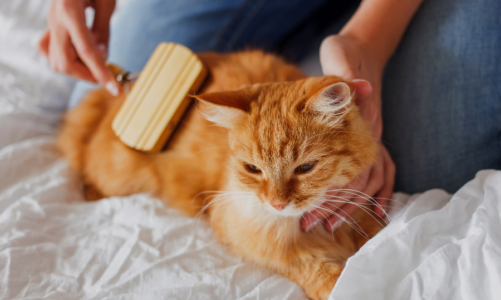If your dog has smelly gas, loose stools, or vomiting episodes, he or she might be suffering a sensitive stomach. Constant gastrointestinal issues in dogs can signify a food allergy, inflammatory bowel disease, parasite infection, or another problem that requires veterinary attention. Fortunately, you can resolve many minor digestive issues at home, starting with better eating habits and lifestyle changes.
Find the Right Diet
The foundation of caring for a dogs’ sensitive stomach is looking for a food, or foods, which agree with them. Since intolerances and allergies vary a lot between dogs, this often requires both patience and the process of elimination. Monitor how your buddy does on different proteins, grains, supplements, etc.
Start by transitioning slowly to a digestive or limited-ingredient prescription kibble made for sensitive systems. If certain ingredients seem suspect, try cutting them out completely for a few weeks and gauge improvements. Consider dog food that helps with gas from a brand like Nextrition. Finding the ideal balance of nutrients takes work but pays off in digestive comfort.
Rule Out Other Causes
Of course, sensitive bellies can also stem from more serious conditions needing medical attention beyond just a delicate stomach. Rule out parasites, viral infections, organ disease and foreign bodies, by having your veterinarian run needed diagnostic tests. Catching and addressing underlying illness is key to getting your best friend lasting relief. Discuss symptoms, diet history and any pertinent pet lifestyle factors to help home in on what troubles might be brewing behind upset tummies. Often, effective prescription or over-the-counter medication can help settle distress once a cause is found.
Stick to a Schedule
Just like us, dogs do best on consistent routines. Walks, meals and playtime at regular intervals each day reinforces poochie plumbing schedules. Take pups out immediately upon waking, shortly after eating, and before bed to encourage timely potty breaks. Holding waste stretches the colon, aggravating any inflammation or irritation already present. Let your dog comfortably relieve themselves whenever needed, even if slightly more frequent. Patience and patterns prevent accidents plus discomfort in tummies prone to trouble.
Keep Stress Low
Anxiety and excitement can seriously upset sensitive systems prone to stomach issues. Loud environments, strangers, separation from owners, or change in routines can all trigger tummy troubles. Help high-strung pets stay calm by diffusing soothing lavender essential oils, swaddling in compression wraps, playing peaceful music and providing sturdy crates as “dens” where they feel secure. If stricken by occasional, acute stress like storms or construction noise, try an over-the-counter calming supplement. For more chronic stress like adoption transitioning, speak to your veterinarian about anti-anxiety medication options. Supporting dogs emotionally does wonders for protecting sensitive stomachs.
Give Pro- and Pre-Biotics
Supplementing food with pro- and pre-biotics facilitates digestion by nourishing the microflora responsible for breaking down nutrients and controlling “bad” bacteria. Probiotics are the live cultures themselves found in raw goat’s milk, fermented vegetables, kefir, and special powders. Prebiotics are non-digestible fibers that feed these beneficial bugs found in chicory root and dandelion greens. Sprinkling a spoonful over meals gently eases assimilation without shocking sensitive systems. Consider rotating through various types in order not to trigger new intolerances. A rainbow of gut-friendly functional foods keeps tummies balanced beautifully.
Conclusion
Caring for canines with easily upset stomachs presents challenges, but satisfying solutions exist. Identifying problematic ingredients, upholding daily routines, minimizing stressors and supplementing with probiotics all help sensitive systems thrive. While the road to gut wellness may start bumpy through trial and error, patience pays off for pets and parents peace of mind. Get ahead of gastric woes through smart preventative plans, and soon both ends of your buddy will be wagging once again.




